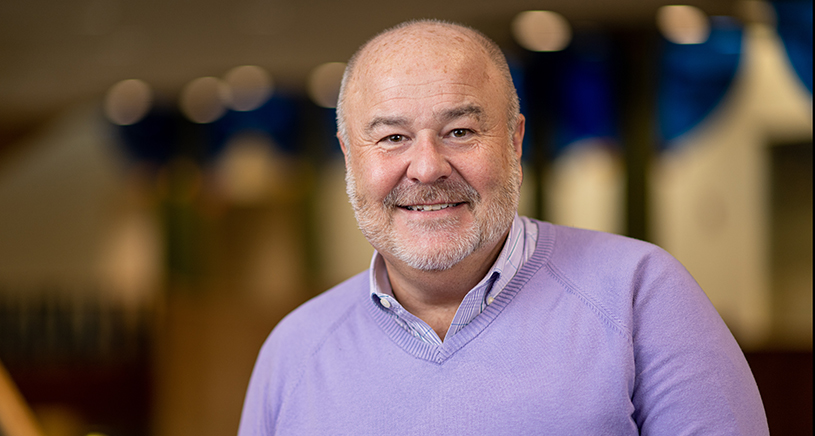Courses Taught by Gary Harper
PUBHLTH313: Lgbtq+ Health Promotion: Local And Global Strategies
- Undergraduate level
- Residential
- Winter term(s) for residential students;
- 3 credit hour(s) for residential students;
- Instructor(s): Gary Harper (Residential);
- Not offered 2024-2025
- Prerequisites: PUBHLTH 360 or permission of the instructor.
- Advisory Prerequisites: None
- Description: This skills-based course is focused on providing students with the background, knowledge, skills, and experience needed to create a range of LGBTQ+ health promotion products/materials, programs/interventions, and policies/structural change strategies for diverse populations in multiple settings - including strategies used in local U.S. settings and in global settings. Students will explore and understand health concerns experienced by LGBTQ+ people and communities, and examine the range of LGBTQ+ specific social determinants of health and health inequities. LGBTQ+ health promotion strategies that are delivered at multiple socioecological levels (i.e., individual, interpersonal, organizational, community, and structural/policy) will be reviewed and analyzed in order to explore benefits and challenges of each. Students will then critically analyze existing LGBTQ+ health promotion materials and products (both local and global); interventions and programs; and health policies and other structural change strategies. They will also produce their own LGBTQ+ health promotion product or material; concept sheet for the development of a new LGBTQ+ health promotion intervention or program; and LGBTQ+ specific health policy brief or fact sheet. Finally, students will work with a global LGBTQ+ focused community-based organization (CBO) to develop and produce an LGBTQ+ health promotion product, program concept, or policy brief to be used by the CBO.
- Learning Objectives: By the end of this course students should be able to: -Describe common health concerns experienced by LGBTQ+ people and communities in both local and global communities. -Describe a range of LGBTQ+-specific social determinants of health and health inequities. -Compare and contrast existing local and global LGBTQ+ health promotion strategies delivered at multiple socioecological levels, including individual, interpersonal, organizational, community, and structural/policy. -Critically analyze existing LGBTQ+ health promotion materials and products, and develop such materials/products that can be used in both local and global settings. -Critically analyze existing LGBTQ+ health promotion interventions/programs, and develop a concept sheet for the development of a new intervention/program. -Critically analyze existing LGBTQ+ health policies and other structural change strategies, and develop a health policy brief or fact sheet. -Work with a global community-based organization (CBO) to develop and produce an LGBTQ+ health promotion product, program concept, or policy brief to be used by the CBO.
- Syllabus for PUBHLTH313

PUBHLTH360: Community, Culture, and Social Justice (CCSJ) in Public Health
- Undergraduate level
- Residential
- Fall term(s) for residential students;
- 3 credit hour(s) for residential students;
- Instructor(s): Gary Harper (Residential);
- Prerequisites: None
- Advisory Prerequisites: PUBHLTH 200
- Description: Students will explore social constructions of health, and examine the interplay of community, cultural, ethical, social, economic, environmental, political and social justice forces that shape health. Concepts of community, culture, and social justice will be explored and students will examine how these concepts can be applied to public health interventions.
- Syllabus for PUBHLTH360

PUBHLTH457: Translating Hiv Research Into Policy And Practice For Sgm Communities
- Undergraduate level
- Residential
- Fall, Winter term(s) for residential students;
- 1-2 credit hour(s) for residential students;
- Instructor(s): Gary Harper (Residential);
- Prerequisites: None
- Description: This course is required course for seniors in the SOAR program. Students will work on professional development for research careers, including applying to graduate programs, discussing behavioral and social science career issues in a group setting, and working on research products such as articles for publication or policy briefs.
- Learning Objectives: -Describe a range of SGM-specific HIV-focused social determinants of health and health inequities. -Compare and contrast existing local and global efforts to translate and disseminate findings from SGM-focused HIV prevention and treatment research delivered at multiple socio-ecological levels, including individual, interpersonal, organizational, community, and structural/policy. -Critically analyze existing SGM-focused HIV prevention and treatment health promotion materials and products, and develop such materials/products that can be used in both local and global settings. -Critically analyze existing SGM-focused HIV prevention and treatment policies and other structural change strategies, and develop a health policy brief or fact sheet. -Describe the type of research career they wish to pursue, including the additional training and experiences they will need to pursue such a career. -Develop a detailed strategic plan focused on short, medium, and long-term goals related to gaining the appropriate training and skills needed to obtain their desired research career.
- This course is cross-listed with WGS 482 in the LSA department.

